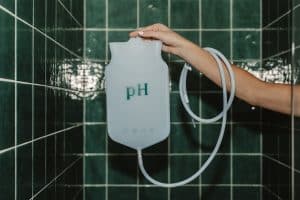The first instalment of our two-part sports nutrition post discussed the major roles each Macronutrient plays in the body when it comes to exercise, endurance training and physical activity.
We get a little deeper this week and consider the Micronutrients – your Vitamins and Minerals. Although they are needed in smaller amounts, they are by no means less important. Although often overlooked in the fitness industry, making sure you’re getting the adequate amounts of Micronutrients is just as vital as “hitting your Macros” when it comes to performance, recovery and reducing of injury and long-term health problems.
Magnesium
Discussed briefly in our Sports Massage post, we thought this magic mineral deserved it’s own little spot light. Magnesium is needed for HUNDREDS of biochemical reactions within the body, and is found everywhere in your body, from your bones to your organs. We can also get it from our diet, but when there is an increase in stress on the body, whether that be emotional or physical in the form of exercise/training, the demand greatly increases as we tend to burn through our stores at a much greater rate. Ensuring you are keeping your Magnesium levels up through food or supplementation , will help with muscle soreness/cramping, restful sleep (essential for proper recovery) and energy production.
Dietary sources of Magnesium: Dark, leafy greens like kale, spinach and silverbeet, chlorophyll, pumpkin seeds and almonds.
Calcium
Theoretically, weight bearing exercises should strengthen bones. However, if most of your exercise is endurance based or you’re leaving your training sessions drenched in sweat quite often, you could potentially be losing valuable minerals in the process, one of those being calcium. When you lose calcium via your sweat, your body will try to replenish your blood calcium levels to keep them balanced by leaching some from your bones. If this is occurring for prolonged periods of time and not being addressed, you run the risk of greatly depleting your bone density and making them weaker over time causing things like stress fractures. If you’re an athlete, cyclist, runner or just tend to have higher intensity, and very sweaty work out sessions, ensure your diet is rich in calcium and possibly consider supplementation too.
Dietary sources of Calcium: tinned fish with soft, edible bones like sardines and salmon, sesame seeds, tahini, dark leafy greens like kale, spinach and silverbeet, and good quality, grass fed and organic dairy.
Iron
Iron deficiency can be caused by not having enough dietary intake of it, but did you know you can also lose iron through physical activity? Foot strike haemolysis can happen with high mileage runners, where red blood cells are damaged from the feet repeatedly hitting the ground. The life cycle of a red blood cell is usually 120 days, but the pressure of the feet striking the ground can cause the red blood cells to burst within the blood vessels and end their life prematurely. You can help to reduce this impact by working on correcting your foot strike, eating foods rich in iron and monitoring your iron levels with regular testing to ensure you’re within healthy range. (This is especially important for women, as we do lose a substantial amount each month from menstruation unfortunately!)
Dietary sources of iron: Dark, leafy greens, red meat and poultry (grass fed/organic/free range), egg (especially the yolk), liver/organ meats, salmon, tuna and oysters.
B Vitamins
B Vitamins are used in various key functions within the body, from DNA synthesis to cell and tissue repair. They also play a major role in energy production, in particular Vitamins B1, B2, B3, B6 and B12. We don’t produce B Vitamins in our body, so it’s essential we get it through our diets! Our demand also increases when stress on the body (both emotional and physical) so it’s crucial we keep that supply up to ensure our bodies are functioning well.
You’ll know when you’re not having enough quickly too. Your energy levels will dip and you’ll fatigue much sooner in both your training and in your day to day life, your muscles will feel weaker and you’ll experience neurological symptoms like brain fog, a decrease in mental clarity and cognition and even mood swings.
Dietary sources of B Vitamins: animal products like dairy, eggs, meat and poultry (always go for good quality organic, grassfed and pasture raised animals), seafood, dark leafy greens and nutritional yeast.
Should I Supplement?
This is a common question we get asked here in clinic, and it’s not always a straight forward answer. Whether you are coming in to seek help in treating a deficiency or if it’s to help prevent one, we will always look at the whole picture first. This includes your health history, current lifestyle and diet, any testing you’ve had done and what your health goals are. If dietary and lifestyle changes are not enough, we will then recommend nutritional supplements to help support your body. We stock high quality practitioner-only products in our clinic, that use good quality ingredients and are tested for quality control and efficacy. You can of course find cheap vitamins and supplements in pharmacies and health food shops, but if they are not quality products then you are likely to be simply wasting your money.
If you’d like more guidance on nutrition and what will work best for your body and it’s individual needs, book in for a Nutrition consult with Laura. She will evaluate your current diet, lifestyle and health issues and help you to create a sustainable and achievable plan of action to help you reach your goals.
By Laura Phongsavath
Holistic Nutritionist / pH Clinic Manager
Adv Dip. Nutritional Medicine
ATMS #50697


